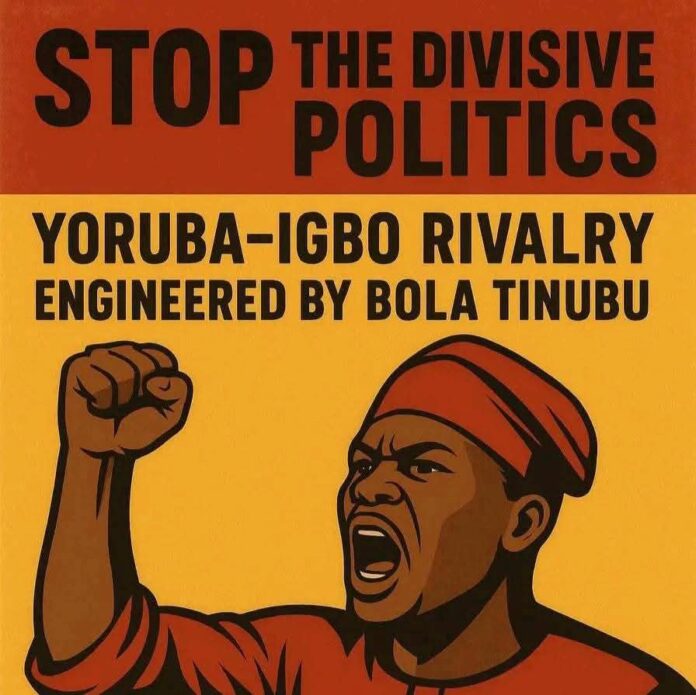By: Daure David
In the annals of Nigeria’s political history, few moments have felt as perilous and fractured as the present. The 2023 elections may have come and gone, but their aftermath has left behind a nation more divided than ever along tribal, ideological, and partisan lines. What was once a vibrant, if imperfect, democracy is now teetering under the weight of intimidation, intolerance, and institutional decay.
Lagos, Nigeria’s commercial nerve center and cultural melting pot, has become a flashpoint for political violence and tribal profiling. The city that once prided itself on cosmopolitanism now sees citizens branded by ethnicity based on their political affiliations. Supporters of Peter Obi, regardless of their actual heritage, are routinely labeled “Igbo” as a slur an alarming regression into tribal illiteracy.
Even prominent Lagos sons like Gbadebo Rhodes-Vivour (GVR), whose lineage is deeply rooted in Yoruba history, are now dismissed as outsiders simply for daring to challenge the status quo. His rallies have been disrupted, his supporters harassed, and his legitimacy questioned not on merit, but on tribal assumptions.
Across Nigeria, political thuggery has become normalized. From ballot snatching to voter intimidation, the tactics of “smash and grab” politics once whispered about in backrooms are now openly deployed. The ruling elite, emboldened by unchecked power and a compromised judiciary, appear more interested in silencing dissent than serving the people.
The civil service, once a bastion of bureaucratic order, now mirrors the chaos of the political class. Bribery and corruption have reached unprecedented levels, while accountability is treated as an inconvenience rather than a democratic necessity.
Perhaps most disturbing is the calculated attempt to muzzle free speech. Citizens who dare to criticize government policies or question leadership are met with online abuse, physical threats, and even legal harassment. The digital space once a haven for civic engagement is now a minefield of tribal insults and partisan vitriol.
Supporters of opposition movements, particularly the OBIdient movement, face daily attacks simply for expressing their views. The idea that political disagreement should lead to ethnic profiling is not just dangerous it’s anti-democratic.
Nigeria stands at a crossroads. If the current trajectory continues unchecked, the nation risks implosion long before 2027. What is needed now is not more division, but a recommitment to the ideals of justice, equity, and unity.
We must reject tribalism in all its forms. We must demand accountability from those in power. And above all, we must protect the right of every Nigerian to speak freely, vote freely, and live freely regardless of their tribe, religion, or political affiliation.
May God guide Nigeria through these turbulent times and restore the soul of a nation that once dared to dream.







